In the first year of this initiative, a steering committee was formed to lead the initiative’s activities and projects. The steering committee was co-chaired by Lisa Goddard and Radley Horton, and was charged with setting activities, goals and narrowing the focus of the initiative. Steering committee members have broad representation across the Earth Institute and the University, and represent a range of expertise in climate science, ecology and environmental biology, earth science, geography, engineering, anthropology, public health, design, business, policy, management and law. The full steering committee is listed below.

Lisa Dale | Lisa Dale is a lecturer for the Undergraduate Program in Sustainable Development. With a background in environmental policy, Lisa completed her graduate work in 2003 and went to work for The Wilderness Society, where she conducted post-doctoral research on the National Fire Plan. From there, she went on to serve as the Director of Governmental Affairs for the Western Forestry Leadership Coalition, a state-federal coalition of forest managers. Returning to academia in 2006, she taught full time at the University of Denver for five years, offering courses that included Public Lands Management, The Global Politics of Climate Change, and Global Environmental Policy. In 2010 she went to work for the State of Colorado, initially as the Legislative Program Director for the (then) Division of Wildlife, and later as the Assistant Director for Parks, Wildlife and Lands (2012-2015). In that role, she worked closely with the Colorado State Land Board, the Colorado State Forest Service and Colorado Parks and Wildlife, connecting those agencies to the Governor’s Office and advising on policy direction. Lisa also served as the Associate Director of the Yale Center for Environmental Law & Policy. She has a Bachelor’s degree from Cornell University, a Master’s from Regis University, and a Ph.D. in environmental policy from Colorado State University.
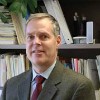
Alex de Sherbinin | Alex de Sherbinin is the Associate Director for Science Applications at the Center for International Earth Science Information Network (CIESIN), an environmental data and analysis center within The Earth Institute at Columbia University specializing in the human aspects of global environmental change. He also serves as deputy manager of the NASA Socioeconomic Data and Applications Center (SEDAC); co-Coordinator of the Population-Environment Research Network (PERN); co-chair of the International Council for Science (ICSU) WDS-CODATA Citizen Science Data Task Group; and co-author of the bi-annual Environmental Performance Index (EPI). He is a member of the scientific committee of the ICSU World Data System (WDS), the editorial board of The Geographical Journal, and the advisory committee for the Platform on Disaster Displacement, and holds a visiting appointment with the Chinese Academy of Sciences. Dr. de Sherbinin is a geographer whose research interests focus on the human aspects of global environmental change and geospatial data applications, integration, and dissemination.
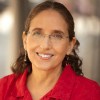
Ruth DeFries | Ruth DeFries is a professor of ecology and sustainable development at Columbia University in New York. She uses images from satellites and field surveys to examine how the world’s demands for food and other resources are changing land use throughout the tropics. Her research quantifies how these land use changes affect climate, biodiversity and other ecosystem services, as well as human development. She has also developed innovate education programs in sustainable development. DeFries was elected as a member of the U.S. National Academy of Sciences, one of the country’s highest scientific honors, received a MacArthur “genius” award, and is the recipient of many other honors for her scientific research. In addition to over 100 scientific papers, she is committed to communicating the nuances and complexities of sustainable development to popular audiences, most recently through her book “The Big Ratchet: How Humanity Thrives in the Face of Natural Crisis.”
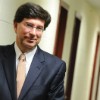
George Deodatis |Professor Deodatis received his Diploma in Civil Engineering from the National Technical University of Athens in Greece in 1982. He holds M.S. and Ph.D. degrees in Civil Engineering from Columbia University, received in 1984 and 1987 respectively. He moved to Columbia University in 2002 where he served as Associate Professor and Professor. Since 2007, he holds the Santiago and Robertina Calatrava Family Endowed Chair at the Department of Civil Engineering and Engineering Mechanics. His research interests are in the area of probabilistic methods in civil engineering and engineering mechanics where he has contributed in developing theories and methodologies for simulation of stochastic processes and fields to model uncertain earthquake/wind/wave loads and material/soil properties, reliability and safety analysis of structures, stochastic mechanics, stochastic finite element analysis, earthquake engineering, structural dynamics, random vibrations, and risk assessment and management of civil infrastructure systems subjected to natural and technological hazards.
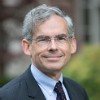
Michael Gerrard | Michael B. Gerrard, Andrew Sabin Professor of Professional Practice at Columbia Law School, teaches courses on environmental law, climate change law, and energy regulation, and is director of the Sabin Center for Climate Change Law. He also chairs the faculty of Columbia University’s Earth Institute. From 1979 through 2008, he practiced environmental law in New York, most recently as partner in charge of the New York office of the firm now known as Arnold & Porter Kaye Scholer. Upon joining the Law School faculty in 2009, he became the firm’s senior counsel. A prolific writer in environmental law and climate change, Gerrard twice received the Association of American Publishers’ Best Law Book award for works on environmental law and brownfields. He has written or edited eleven books, including Global Climate Change and U.S. Law, the leading work in its field (second edition published in 2014, co-edited with Jody Freeman), and the 12-volume Environmental Law Practice Guide.
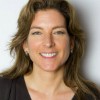
Lisa Goddard (Co-chair) |Lisa Goddard is the Director of Columbia University’s International Research Institute for Climate and Society and leads IRI’s research efforts on understanding and predicting climate change on the 10-20 year horizon. She is also an adjunct associate professor in Columbia’s Department of Earth and Environmental Sciences. Dr. Goddard is a globally recognized expert on El Niño and La Niña, decadal prediction and near-term climate change. She sits on the Board on Atmospheric Sciences and Climate of the U.S. National Academies of Science, as well as four others. She also co-chairs CLIVAR, which advises and coordinates international research on climate and the oceans under the World Climate Research Programme. In 2007, she developed PACE, a national post-doctoral program that explicitly links recent climate Ph.D.s with decision making institutions. Goddard holds a PhD in atmospheric and oceanic sciences from Princeton University and a BA in physics from the University of California at Berkeley.
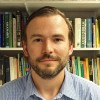
Radley Horton (Co-chair) |Radley Horton is an Associate Research Professor at the Lamont-Doherty Earth Observatory. Radley was a Convening Lead Author for the Third National Climate Assessment, Northeast Chapter. He is the Lead Principal Investigator for the NOAA-Regional Integrated Sciences and Assessments-funded Consortium for Climate Risk in the Urban Northeast. Radley is also the Columbia University lead for the Department of Interior-funded Northeast Climate Science Center. Radley is a PI on an NSF funded Climate Change Education Partnership Project. He is also Deputy Lead for NASA’s Climate Adaptation Science Investigator Working Group, charged with linking NASA’s science to its institutional stewardship. Radley has been a Co-leader in the development of a global research agenda in support of the United Nations Environmental Program’s Programme on Vulnerability, Impacts, and Adaptation (PROVIA) initiative. Radley teaches in Columbia University’s Sustainable Development department.
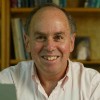
Yochanan Kushnir |Kushnir is a Research Professor at the Lamont-Doherty Earth Observatory, The Earth Institute, Columbia University. His research is concerned with characterizing and understanding climate variability and change using observations and global climate models, and he has particular interest in the role of the oceans in climate variability on time scales of years to decades. With collaborators and students, Kushnir has published extensively on the topics of modern and paleo climate variability. He co-edited and contributed to the 2003 American Geophysical Union Monograph: The North Atlantic Oscillation: significance and environmental impact and was one of the authors of the 1995 National Academies report on Climate Variability on Decade-to-Century Time Scales. Between 2003 and 2014 he served as the director of the Cooperative Institute for Climate Applications and Research (CICAR), a research partnership between the National Oceanic and Atmospheric Administration (NOAA) and Columbia University.
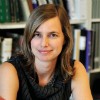
Kate Orff |Kate Orff’s activist and visionary work on design for climate dynamics has been shared and developed in collaboration with arts institutions, governments, and scholars worldwide. She is an Associate Professor at Columbia GSAPP and Director of the Urban Design Program, where she coordinates complex interdisciplinary studios centered on urban systems of the future. Her design studios and seminars aim to discover new ways of integrating social life, infrastructure, urban form, biodiversity and community-based change. Orff is a registered landscape architect and the founder of SCAPE, an award winning 30-person professional practice based in lower Manhattan, where she directs the design of all projects. The firm has won National and local American Society of Landscape Architecture Awards for built projects, planning and communications work, and the work of the office has been featured on the cover of Landscape Architecture magazine, LA China and Topos, and in The New York Times, New Yorker and Economist, among other publications.
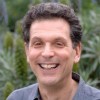
Ben Orlove |Ben Orlove, an anthropologist, has conducted field work in the Peruvian Andes since the 1970s and also carried out research in East Africa, the Italian Alps, and Aboriginal Australia. His early work focused on agriculture, fisheries and rangelands. More recently he has studied climate change and glacier retreat, with an emphasis on water, natural hazards and the loss of iconic landscapes. Orlove directs the Center for Research on Environmental Decisions (CRED) at the Earth Institute. He taught for many years at the University of California, Davis. At Columbia University, Orlove teaches in the Master’s Program in Climate and Society, for which he serves as Associate Director. He is also a Senior Research Scientist at the International Research Institute for Climate and Society. Orlove earned a BA from Harvard University and an MA and PhD from the University of California, Berkeley.
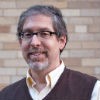
Jeffrey Shaman |Jeff Shaman is an Associate Professor Environmental Health Sciences and Director of the Climate and Health Program at the Mailman School of Public Health. He focuses on climate, atmospheric science and hydrology, as well as biology, and studies the environmental determinants of infectious disease transmission and infectious disease forecast. For the former, Dr. Shaman investigates how hydrologic variability affects mosquito ecology and mosquito-borne disease transmission, how atmospheric conditions impact the survival, transmission and seasonality of pathogens, and, how meteorology affects human health, in general. For the latter, he is engaged in developing mathematical and statistical systems for generating forecasts of infectious disease outbreaks at a range of time scales. In addition, Dr. Shaman is studying a number of climate phenomena, including Rossby wave dynamics, atmospheric jet waveguides, the coupled South Asian monsoon-ENSO system, extratropical precipitation, and tropical cyclogenesis.
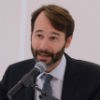
Bruce Usher | Bruce Usher is a Professor of Practice and The Elizabeth B. Strickler ’86 and Mark T. Gallogly ’86 Faculty Director of the Tamer Center for Social Enterprise at Columbia Business School. Professor Usher teaches MBA students on the intersection of finance, social and environmental issues, and is a recipient of the Dean’s Award for Teaching Excellence. Prior to his work at Columbia, Professor Usher was CEO of EcoSecurities Group plc, during which time he built it into the world’s largest carbon credit company. Usher was previously the co-founder and CEO of TreasuryConnect LLC, which provided electronic trading solutions to banks and was acquired in 2001. Prior to that, he worked in financial services for twelve years in New York and Tokyo. Professor Usher is an active investor and advisor to entrepreneurial ventures focused on climate change and clean energy (UsherWorks.com). Usher earned an MBA with distinction from Harvard Business School.